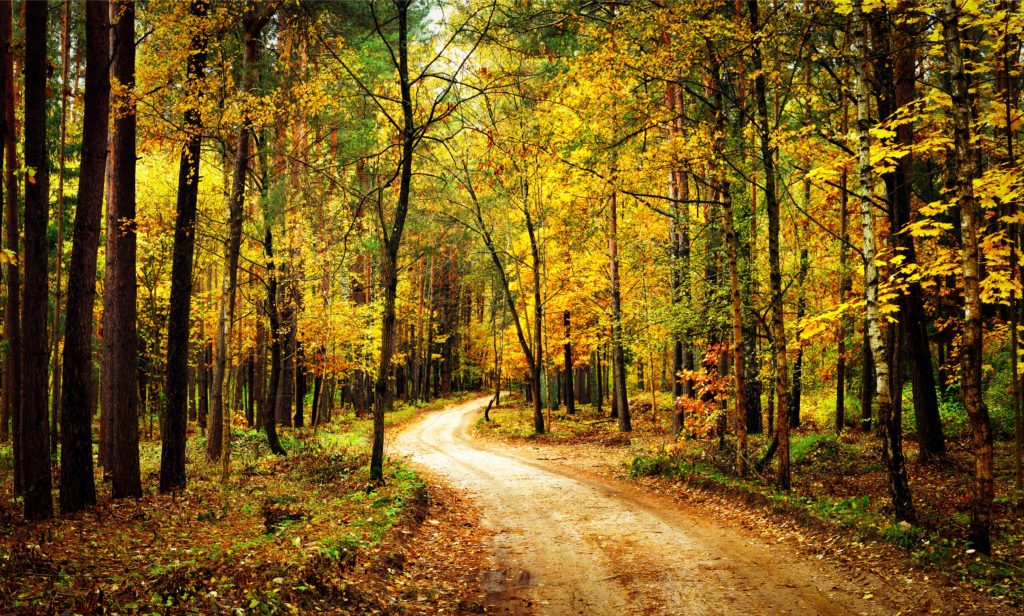Quick Hits
Daily brief research updates from the cognitive sciences

Does getting into the countryside really lower stress and improve wellbeing? Or is that those who enjoy the countryside feel less stressed in the countryside – but city lovers may feel less stressed in the city. It could also be that being in the countryside involves activity and exercise which we also know is beneficial so it could be the effect of movement and not nature itself.
This is a conundrum that researchers into the impacts of nature on health, wellbeing, and the brain need to try to disentangle. But first off there is plenty, and I do mean plenty, of research to show the positive effects of nature on human wellbeing and health – I regularly report on this: for example here or this one on walking in nature here.
To try to resolve some of these chicken-or-egg problems Sonja Sudimac et al. from the Max Planck Institute for Human Development conducted an interesting study. In this they compared the results of 63 people who undertook a 60-minute walk in the wood and of a 60-minute walk along the streets of Berlin.
What’s more their brains were scanned before and after both scenarios. This is unusual because almost all the research looks at subjective feelings – here the researchers could peer into the participants brains and see the difference before and after in city or in the forest.
What did they find?
The one thing they noticed is that activity decreased in a region of the brain called the amygdala. The amygdala is pretty well-known and is a centre in the brain that is involved in emotional processing but particularly of threat, fear, and in stress responses.
This therefore shows that brain regions associated with stress lower activation to walking in nature only and not in the city. The exercise is no doubt beneficial – the walk in the city, however, showed no increase or decrease in activity in the amygdala.
So, this is another piece of evidence but a very strong piece of evidence to show that nature can have beneficial effects – particularly in lowering stress.
The researchers are now following this up with research into how natural and urban environments impacts stress in mothers and their babies. I will be watching out for that one as well.
But for now – get yourself into nature for a walk

Andy Habermacher
Andy is author of leading brains Review, Neuroleadership, and multiple other books. He has been intensively involved in writing and research into neuroleadership and is considered one of Europe’s leading experts. He is also a well-known public speaker, speaking on the brain and human behaviour.
Andy is also a masters athlete (middle distance running) and competes regularly at international competitions (and holds a few national records in his age category).
References
Sonja Sudimac, Vera Sale, Simone Kühn.
How nature nurtures: Amygdala activity decreases as the result of a one-hour walk in nature.
Molecular Psychiatry, 2022
DOI: 10.1038/s41380-022-01720-6
More Quick Hits
How Sleep Helps Your Brain Manage Fear
Quick HitsDaily brief research updates from the cognitive sciences leep on i” is common advice for many reasons. Often to consolidate thoughts and help boost creativity. This is a well-known effect. We also know that sleep is the time that helps to...
Video games can boost children’s intelligence
Quick HitsDaily brief research updates from the cognitive sciences ell, this is not the answer many of us would expect, and it goes against other logic of spending more time doing other things such as reading or socialising with friends...
Just how many people get COVID brain?
Quick HitsDaily brief research updates from the cognitive sciences here are many questions still open about COVID and the brain. There is no doubt that long COVID exists, and this can have dramatic impacts on people’s lives. But just how...
Brain networks and losing weight – successfully or not
Quick HitsDaily brief research updates from the cognitive sciences s weight loss all in the mind? Well, with the danger of oversimplifying a complex topic, this latest research shows it is, and shows precisely how and with what networks. So,...
Reversing aging – with poo!
Quick HitsDaily brief research updates from the cognitive sciences ho wouldn't want to age better - well the results of an unsual study are in and the results are promising and may make many of you who are aging prick up your ears. The...
Brisk walking slows biological aging
Quick HitsDaily brief research updates from the cognitive sciences f you want to age better, then walk quicker, or those who walk quicker, age slower. That is the result of a recent study of 400,000 UK adults mapped to genetic markers of age...






